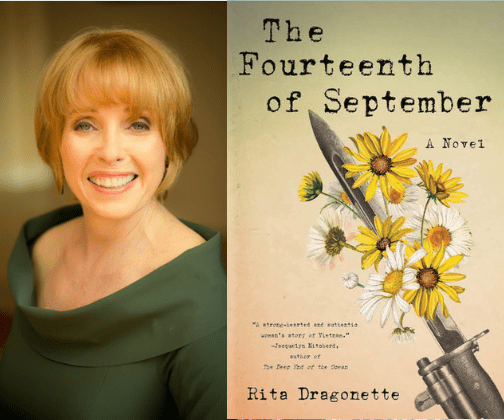The views expressed by our NovelNetwork authors are their own and do not necessarily reflect the views of NovelNetwork or its members.
Yes, writers kill to stay relevant, so when a reader contacted me recently with the “by the hour” phrase about my nearly two-year-old book, I was happy to hear it. If it brings additional readers to my story of young people making fateful choices of conscience in a world that no longer made sense, I’m all for it. That’s why I wrote it. But I am conflicted that the story increasingly reads more like current than historical fiction.
Over the past two years, I’ve talked a lot about the parallels and déjà vu between the Vietnam era time frame of The Fourteenth of September and so I’ll stick to the broad strokes.
There wasn’t a pandemic, but there was a war—both overwhelmingly destructive events that were poorly handled. We did have an impeachable president with a loose relationship with the truth and the rule of law, a polarized country, and massive inequality. Let’s just say the situation was so bad that when we saw our peers murdered on television at Kent State, we didn’t think it could get worse.
We were sure there would be a revolution. It’s impossible not to be reminded of it when watching the real-time assaults on George Floyd, Jacob Blake, and others. I hear “complicit,” “revolution,” and the phrase “it won’t be quiet,” and my lips remember how to yell those words. I still feel the rage, but also such sadness that after all this time problems we thought were so close to being solved are here before us, all over again, and far worse for having been swept under the rug for so many years. Similarly, the effects of the Vietnam War didn’t go away because we refused to talk about it—but the lessons did: the fatiguing, draining hamster wheel of history.
And let’s admit the remedy has always been hard. Activism is and has always been complicated. When you hit the streets it’s because you’ve tried all the proper channels to no avail and found yourself powerless, and rage and reason need to balance. There are always differences about how to turn message into action to where the point can get lost, and the only thing that’s heard is the sound of breaking glass.
I hope readers will continue to come to the book for relevance and stay for the rest—a coming of age story of college life, feminism, first love, bad boys, best friends, teacher worship, mother/daughter conflict, generation gaps—the Sturm und Drang of growing up under the umbrella of a terrifying world situation while lacking the experience or maturity to understand how to navigate: in short, young people who represented the generation whose parents so worried they were about to leave their children a world they had messed up. Yup, kind of like today.
I always knew the story was and would be relevant; I just didn’t realize it would be so on the nose this very second-anniversary minute.
The Fourteenth of September is and hopefully will always be for readers who want to understand the historical roots of some of what we’re still facing today, step into the shoes of a character who has to make choices of an earlier time and wonder what they’d have done, and think about how those choices aren’t so different today. We still have the power for change . . . maybe this time it will last.

